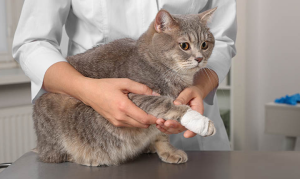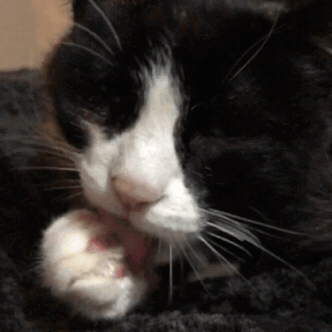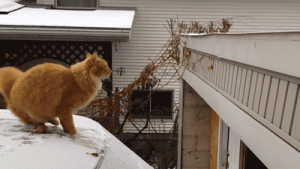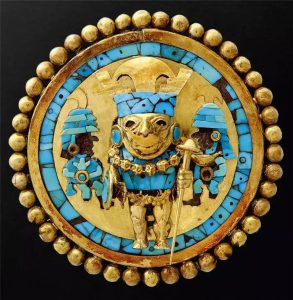Kittens have so many adorable features, and one of the cutest is their little paws! Especially when they lick their paws, it’s like the ultimate display of their cuteness… But sometimes, this paw-licking behavior makes us wonder: Why do cats lick their paws every day?
-
Why Do Cats Lick Their Paws Every Day?
① Cleaning Their Paws: Cats walk around every day, touching everything with their paws, so their paws can easily get dirty. Licking their paws is essentially a cleaning ritual. The papillae on their tongues help remove dirt and debris. For areas they can’t reach, like their face, cats will use their paws to help with cleaning.② Nail Maintenance: When cats lick their paws, they often also engage in scratching or pulling at their nails. This is related to the structure of their claws, which grow in layers. When a nail gets worn down, it becomes dull. For outdoor cats, this means a decrease in their fighting ability. To keep their claws sharp, cats will intentionally shred the outer layers of their nails, allowing new, sharper claws to emerge.③ Heat Regulation: Cats have sweat glands only in their paw pads and around their mouths. Because they have limited ways to cool off, licking their paws is one of their methods. The saliva on their paw pads evaporates, helping to cool them down. While licking paws is normal for kittens, excessive or frequent licking could indicate an issue with the paws.
-
How to Tell if Your Cat’s Paws Are Abnormal?
The simplest way is to observe your cat’s paw behavior. If the licking increases in frequency and duration, and the paws show signs of redness, swelling, heat, skin damage, or scabbing, it’s time to take notice. If your cat shows other symptoms like loss of appetite, lethargy, limping, or avoiding touch, this suggests abnormal paw behavior. These signs could point to an underlying problem.

-
What Causes Cats to Lick Their Paws Excessively?
①Injury to the Paws.Injuries, such as a broken nail, a scratch from sharp objects, or wounds from fighting with other cats, can cause your cat to lick its paw to clean the wound and alleviate pain.Solution: Clean the wound, disinfect it, and apply an Elizabethan collar to prevent further licking. If the wound is deep or won’t stop bleeding, take your cat to the vet immediately.② Parasites.Parasites like fleas, ticks, mites, or mosquito bites can cause skin irritation. Just like humans, cats can feel itchy, swollen, and uncomfortable, leading them to lick their paws to relieve the sensation.Solution: Regular deworming and flea treatments (monthly) and environmental pest control.③Stress or Anxiety.Just like people might bite their nails when anxious, cats may lick their paws excessively when stressed or anxious.Solution: Identify and eliminate the source of stress, and enrich your cat’s environment with toys and safe spaces.④ Fungal or Bacterial Infections.If cats live in damp environments or have weakened immune systems, they are more prone to infections, which may cause itching, swelling, and discomfort, prompting them to lick their paws.Solution: Visit the vet for prescribed antibiotics or antifungal medications.⑤Allergies.Some cats may be allergic to certain foods, plants, dust, or pollen, causing itching in their paws.Solution: Identify and eliminate the allergen, and adjust their diet or environment as needed.
-
How to Prevent Excessive Paw Licking?
Store Sharp Objects: Keep sharp items like scissors, needles, and broken glass out of your cat’s reach to prevent injuries. Store them safely in drawers or cabinets.Keep the Environment Dry: Ensure that your home, especially places like bathrooms, is kept dry. Cats’ paws should stay dry to avoid infections or irritations. For example, lock the bathroom door to prevent your cat from entering the damp area.Dry Your Cat’s Paws After Cleaning: If your cat’s paws get dirty, make sure to dry them thoroughly after cleaning. Don’t trim the fur on their paws unless necessary. The fur acts as a protective barrier, shielding their paw pads from minor injuries. Often, trimming the fur can cause unintended cuts.Avoid Long-Term Caging: Prolonged confinement in a small cage can cause stress and anxiety in cats. A cramped space with poor hygiene can lower their immune system and make them prone to infections. Additionally, if there is no soft bedding or proper foot support in the cage, their paws can become injured or infected.
In daily life, one of the easiest and most important things we can do is regularly trim our cat’s claws. This is often the closest moment of contact between a cat owner and their cat’s paws. Not only does it give you a chance to check the condition of their claws, but it also allows you to trim any overly long nails, preventing them from growing into the paw pads.





